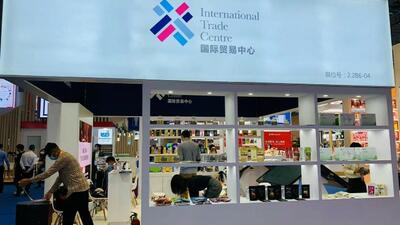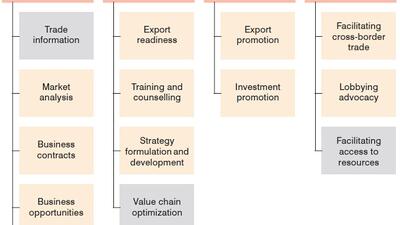Enhancing trade in landlocked countries through the private sector
Businesses located in countries with poor trade facilitation are seriously inhibited from attaining great trading opportunities in this era of heightened globalization and trade intensification. Trade facilitation is critically important to small and medium-sized enterprises (SMEs), as they have lower turnovers than large multinational firms, and thus a lower capacity to absorb trade transaction costs. SMEs frequently have less financial means to deal with administrative burdens, which often leads them to forego opportunities to enter new markets or raise trade volumes in existing markets..
This situation is exacerbated for SMEs located in landlocked developing countries. ‘Landlockedness hinders full participation in international trade and minimizes comparative advantage,’ said Heidi Schroderus-Fox, Director, Office of the High Representative for the Least Developed Countries, Landlocked Developing Countries and the Small Island Developing States (UN-OHRLLS), at a meeting about transport and logistics innovation held at the United Nations Conference on Trade and Development (UNCTAD) from 22 to 24 October in Geneva, Switzerland. ‘A recent study by UN-OHRLLS revealed that landlocked developing countries’ (LLDCs) trade was just 61% of the trade volume of coastal countries, while transport costs of LLDCs were 45% more than in a representative coastal country. Because of the landlockedness, the level of development in the LLDCs is on average 20% lower than what it would be were the countries non-landlocked. Improved transport and trade facilitation are still key to reducing the high trade and transport costs for LLDCs.’ This was a key message given by Schroderus-Fox at the meeting, which aimed to prepare for the comprehensive 10-Year Review Conference on the implementation of the Almaty Programme of Action, in 2014.
In order to address the trade facilitation challenges of landlocked countries, the Almaty Programme of Action calls for joint efforts by landlocked and transit developing countries – with substantial technical and financial assistance from partners – to establish a new global framework for the development of efficient transit transport systems. The aim is to overcome the specific problems of the LLDCs that result from their lack of territorial access to the sea and their remoteness and isolation from world markets.
Participants of the Geneva event, mostly diplomats representing LLDCs and transit countries’ missions in Geneva, as well as high-ranking officials from Azerbaijan, the Democratic Republic of the Congo and Nepal, recognized that there has been significant progress in transport development and trade facilitation during the last decade, but there is still a long way to go to optimize connectivity.
Unleashing the private sectorAs recognized by participants at the event, the private sector can play a crucial role in tackling trade facilitation issues. Participants frequently stressed the need for governments to work in collaboration with the private sector to identify stumbling blocks, propose solutions, finance trade-facilitation infrastructure (a particular concern in resource-constrained countries), address policy shortfalls, and provide a competitive domestic environment for trade logistics service providers.
One way to unleash the role of the private sector is the effective utilization of consultative mechanisms to coordinate with public and private stakeholders on a range of measures that need to be undertaken. Rukia Shamte, Executive Secretary of the Central Corridor Transit Transport Facilitation Agency, explained that since the initiative began in 2006, public-private collaboration among Burundi, the Democratic Republic of the Congo, Rwanda, the United Republic of Tanzania and Uganda has greatly improved in parallel with improvements made in trade facilitation among them. The initiative has encouraged feedback from the private sector regarding problems it faces and solutions it has found in carrying out economic and trading activities.
In her address, Schroderus-Fox explained that recent developments in the Almaty Programme of Action have led to the incorporation of a private sector track along with the already established intergovernmental and inter-agency tracks.
‘The purpose of the private sector track is to ensure that private sector representatives are actively engaged during all stages of the preparatory process and at the Conference itself, in particular with a view to helping identify concrete, action-oriented proposals addressing LLDC-specific problems and challenges in the area of trade and trade facilitation, transport, investment and enterprise development,’ Schroderus-Fox said. Ultimately, she added, the private sector can contribute to the formulation of innovative strategies and policy recommendations that will form the new development framework to be adopted at the conference.









